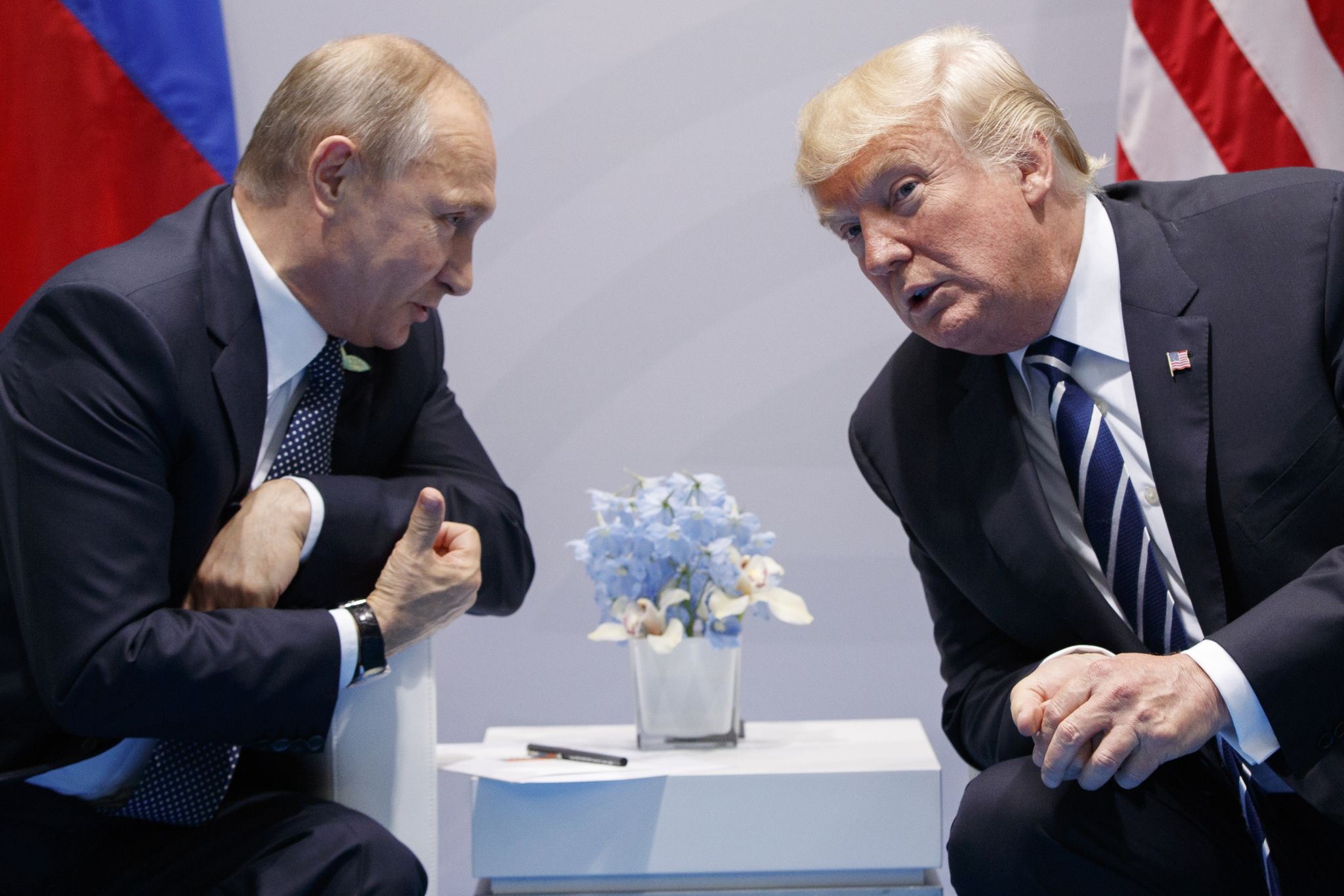
ANALYSIS/OPINION:
There’s something about Helsinki, dark and cold in winter but bright and sunny in summer, that lends itself to meetings of global importance. The usually sleepy Finnish capital hard by the Russian border made its debut on the world stage in 1975, when it was host to a 35-nation meeting that changed the course of relations between the Soviet Union and the West, and produced the Helsinki Accords. Later this month, President Trump and the Russian President Vladimir Putin, will finally meet face-to-face at their first summit.
They will meet July 16 to “discuss relations between the United States and Russia and a range of national security issues,” as the White House describes them, after Mr. Trump attends a summit of the nations of the North Atlantic Treaty Organization (NATO) in Brussels on July 11 and 12.
The meeting has been a long time coming. In 2015, Candidate Trump mused that he would “get along very well with Vladimir Putin.” That’s a theory that has been barely tested; they have only chatted on the sidelines of other international gatherings. This will be the first one-on-one summit between them.
Mr. Putin is nobody’s idea of an ideal small-d democrat, but the deep freeze in U.S.-Russian relations is a bit odd. The business of leadership requires talking to many heads of state, some decent and congenial and some not, men like Kim Jong-un of North Korea, Xi Jinping of China, Recep Tayyip Erdogan of Turkey and Mohammad bin Salman Al Saud, as well as more friendly leaders of Britain, France and Japan. Business requires dealing with everyone, regardless.
The lack of U.S-Russian co-operation has been particularly strange and unproductive, given that Russia and the United States have several common areas of interest. Both are engaged in the struggle against militant Islam and ISIS. Both have a crucial and abiding interest in diffusing the nuclear threat to the world posed by North Korea and Iran.
One reason why Mr. Trump has not yet met Mr. Putin is clear enough. The Democrats, and some establishment Republicans, can’t get their minds around the fact that times have changed. They have seized on a questionable narrative of Putin–Trump “collusion” to explain how Hillary Clinton could lose the 2016 election. A conspiracy theory, promoted by the likes of CNN News and embittered Democratic politicians, has it that Messrs. Trump and Putin were in cahoots to subvert democracy and commission a new cast of political characters on the world stage.
The case for the conspiracy has always been a fanciful one, and is beginning to look ever more so as Robert Mueller, the special counsel commissioned to find the proof of collusion, has yet to produce even a mouse. Armed by government millions and vast investigative powers, he has so far indicted only bit players in a drama without dramatics. Mr. Trump, meanwhile, has been remarkably tough on Russia. He has imposed strong sanctions on Russia and expelled scores of Russian diplomats. As evidence of collusion, that’s pretty thin soup.
Against this political climate created by the Democrats, the mainstream media, and the Mueller investigation, a Trump–Putin summit would seem unlikely. Perhaps emboldened by the successful Trump-Kim summit — the Donald and Rocket Man not only didn’t come to blows but left Singapore with a budding bromance — the president feels confident enough to move forward with meeting Mr. Putin. That looks like it might be a good thing.
The president, given to enthusiasms, must not go easy on Mr. Putin. The United States and Russia have common areas of interest, but it’s beyond dispute that the Kremlin has been a bad actor in Ukraine, and has meddled in elections in the West through the bold use of misleading Facebook ads and an army of bots. The Russians attempted to murder a former spy and his daughter in a public park in Britain, reprising evil from the darkest days of the Cold War. Mr. Trump should raise questions about this, too.
The president should obviously look for opportunities to improve relations between Washington and Moscow, which are at a low ebb. Coordinated campaigns against ISIS and upgrading economic relations could be on the agenda. The two may not produce a new Helsinki Accords, but they could come away with something useful. Even Chuck Schumer and Nancy Pelosi should applaud that.
The Washington Times Comment Policy
The Washington Times welcomes your comments on Spot.im, our third-party provider. Please read our Comment Policy before commenting.
